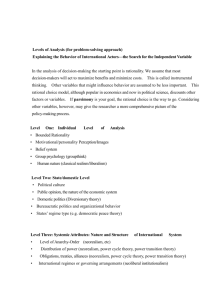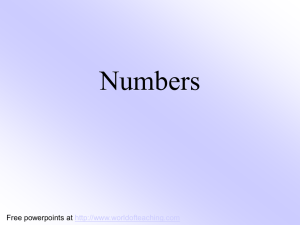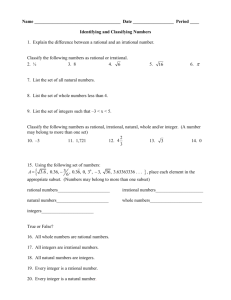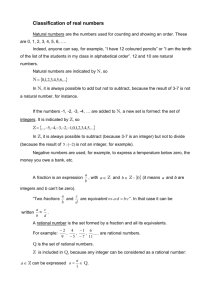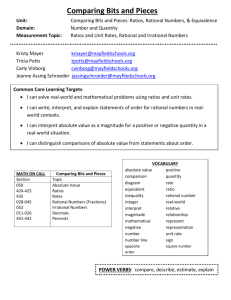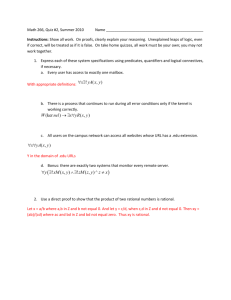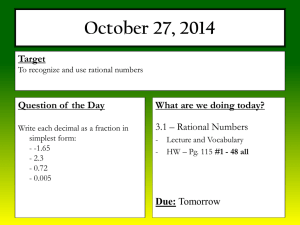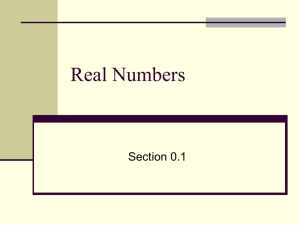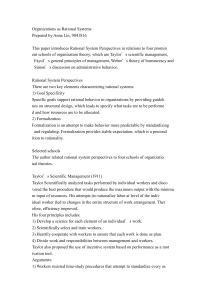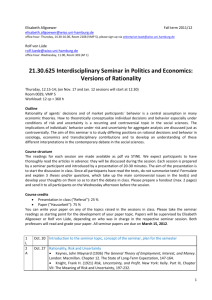Rational Choice
advertisement
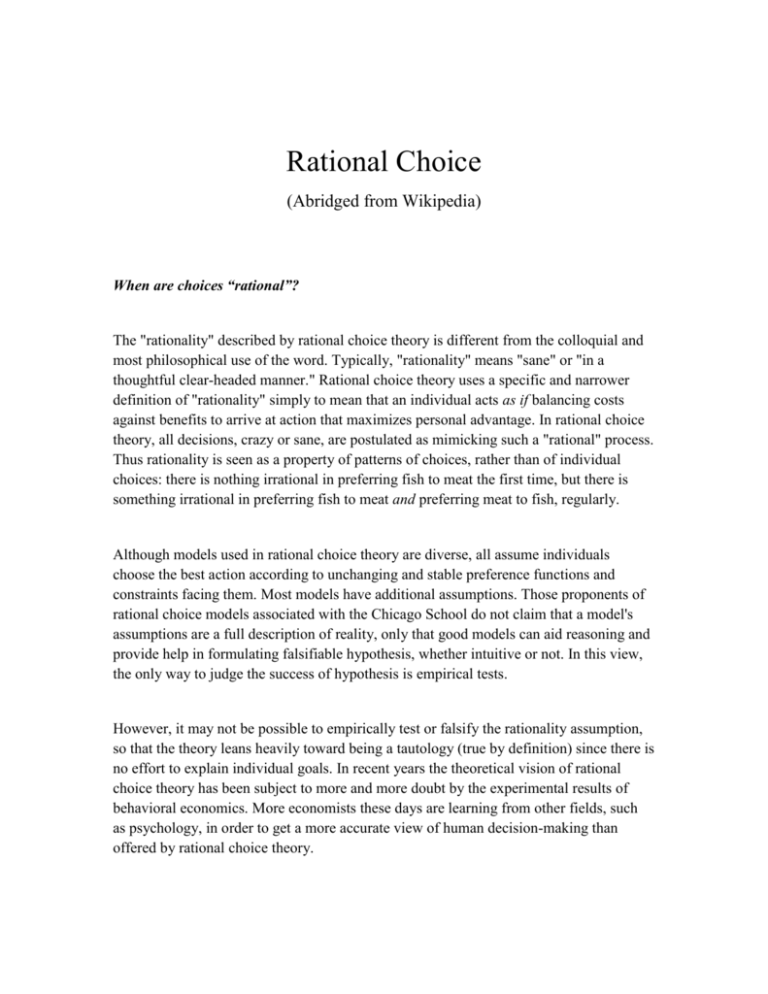
Rational Choice
(Abridged from Wikipedia)
When are choices “rational”?
The "rationality" described by rational choice theory is different from the colloquial and
most philosophical use of the word. Typically, "rationality" means "sane" or "in a
thoughtful clear-headed manner." Rational choice theory uses a specific and narrower
definition of "rationality" simply to mean that an individual acts as if balancing costs
against benefits to arrive at action that maximizes personal advantage. In rational choice
theory, all decisions, crazy or sane, are postulated as mimicking such a "rational" process.
Thus rationality is seen as a property of patterns of choices, rather than of individual
choices: there is nothing irrational in preferring fish to meat the first time, but there is
something irrational in preferring fish to meat and preferring meat to fish, regularly.
Although models used in rational choice theory are diverse, all assume individuals
choose the best action according to unchanging and stable preference functions and
constraints facing them. Most models have additional assumptions. Those proponents of
rational choice models associated with the Chicago School do not claim that a model's
assumptions are a full description of reality, only that good models can aid reasoning and
provide help in formulating falsifiable hypothesis, whether intuitive or not. In this view,
the only way to judge the success of hypothesis is empirical tests.
However, it may not be possible to empirically test or falsify the rationality assumption,
so that the theory leans heavily toward being a tautology (true by definition) since there is
no effort to explain individual goals. In recent years the theoretical vision of rational
choice theory has been subject to more and more doubt by the experimental results of
behavioral economics. More economists these days are learning from other fields, such
as psychology, in order to get a more accurate view of human decision-making than
offered by rational choice theory.
Assumptions of Rational Choice in Bargaining
When applied to contracting, rational choice theory makes five assumptions about the
bargainers’ preferences for action:
Perfect Information -- An individual has full information about exactly
what will occur due to any choice made.
Free Choices – An individual’s choices are not forced upon him.
More is better. Individuals are never satiated.
Completeness– all actions can be ranked in an order of preference.
No Externalities – All individuals affected by a contract are parties to it.
Rationality, which in turn means:
Transitivity -- if action a1 is preferred to a2, and action a2 is preferred
to a3, then a1 is preferred to a3.
Independence of Irrelevant Alternatives -- If A is preferred to B out of the
choice set {A,B}, then introducing a third alternative X, thus expanding
the choice set to {A,B,X}, must not make B preferable to A.

